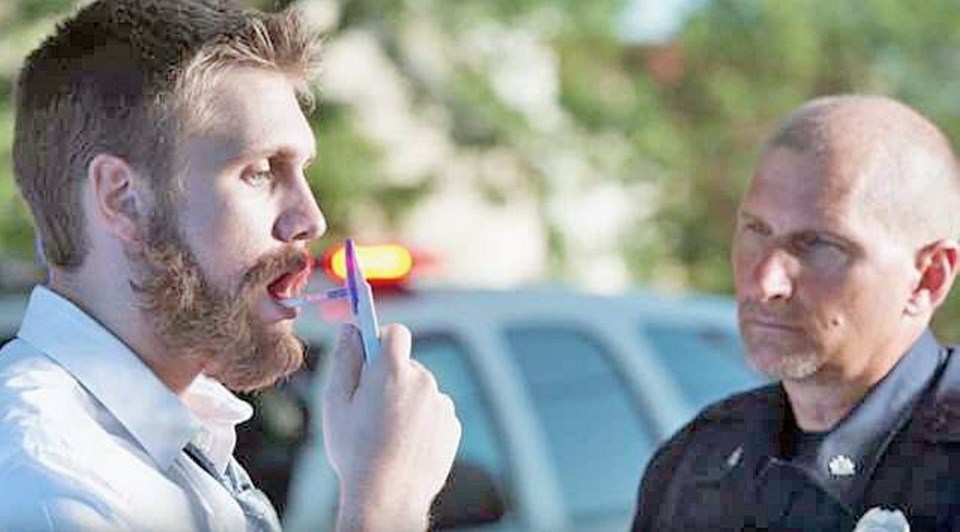Two lawyers from a Vancouver-based law firm say they are ready to challenge the use of a newly approved saliva-screening device for marijuana in court as soon as it hits the road.
On Monday, federal Justice Minister Jody Wilson-Raybould approved the Dräger DrugTest 5000, a device that will soon be available to police forces across the country to combat drug-impaired driving, as the government prepares for the legalization of marijuana in October.
But its design might render it “ineffective” for enforcement in Canada, according to Kyla Lee, a lawyer with Acumen Law.
“The device is designed to operate in temperatures from four degrees to 40 degrees Celsius,” she said.
“Outside of that, it would either give you a false positive or false negative, and either one is just as concerning.
“We are going to be constitutionally challenging this provision of the legislation as soon as we get one of these cases,” Lee added.
To conduct a test through this device, a subject’s oral cavity must be swabbed for one to four minutes to collect saliva.
The sample is then inserted into an analyzing device that will send the results to a mobile printer.
Each unit would cost an estimated $6,000 US, with disposable cartridges at $20 per piece.
While the biggest challenge in enforcement of drug-impaired driving rests on how to properly test drivers, Lee suggests this device doesn’t clear up the issue.
“It doesn’t give evidence of impairment. All it gives is the presence of a drug in a person’s body. Whether or not that impairs that person is specific to every individual.
“We’re treating cannabis as though it’s the exact same as alcohol, that having a certain amount in your body will make you impaired, but that’s just not how cannabis works.”
And that could create particular issues for medical marijuana users, Lee said.

Her colleague Paul Doroshenko said it’s a result of a less established scientific base on how to detect the impairment.
“Legal challenge is inevitable,” he said.
“They designed the legislation by telling Parliament that they were going to have something that is equivalent to a roadside breath tester. But it’s not that.”
The Dräger DrugTest 5000 has already been marketed for 10 years, and is being used in California, Nevada and various jurisdictions in the U.K., Australia and several European countries.
A study published in February looked into Norway’s use of the device by taking blood samples along with saliva tests for more than 300 drivers.
It concluded that the device “did not absolutely correctly identify [driving under the influence of drugs] offenders due to fairly large proportions of false-positive or false-negative results compared to drug concentrations in blood.”
But Rob Clark, managing director of Dräger Canada, said concerns raised both about the study and on temperature are irrelevant.
Clark explained that the standard device used for testing in Norway was testing for up to seven drugs, whereas the one coming to Canada would be limited to THC and cocaine. He added that the cut-off would be greatly different.
“In every other jurisdiction it’s used in, these drugs are illegal. So they’re measuring for a much lower level of the drug. So the normal measurement on the standard device is two or four nanograms [of THC per millilitre of blood],” he said.
“In this case, we’re measuring at a cut-off of 25 nanograms. It makes the test much more robust and much more reliable when you’re measuring for a level like that.”
As for the concerns on temperature, Clark said the main part of the device that does the analysis would remain inside the police vehicle, shielded from extreme temperatures. It is also programmed with heating and cooling functions.
“We have quite a lot of experience with it. It’s a well-proven device, it’s trusted around the world, it stands up in court,” Clark said.
Manufacturers have told the government they will meet the demand within four to six weeks.



